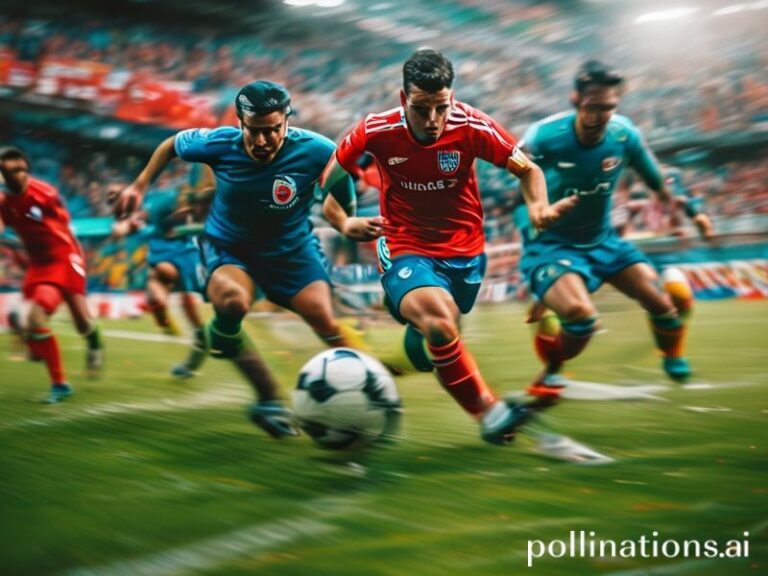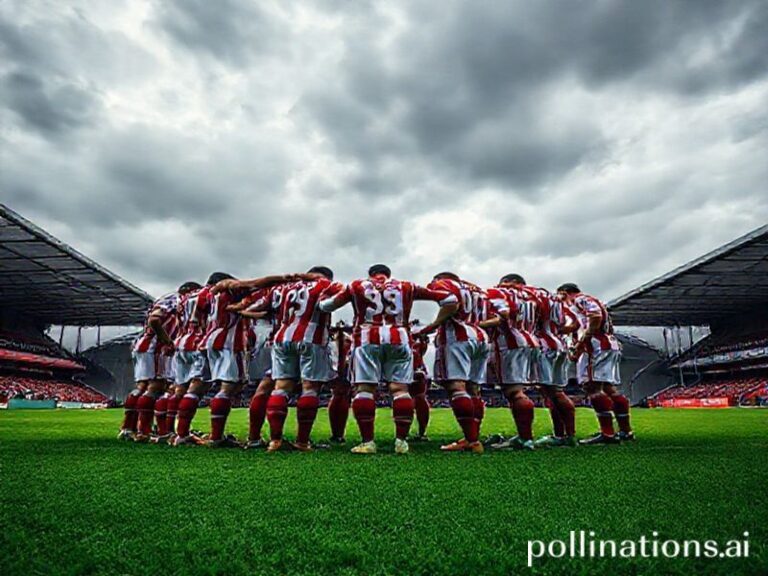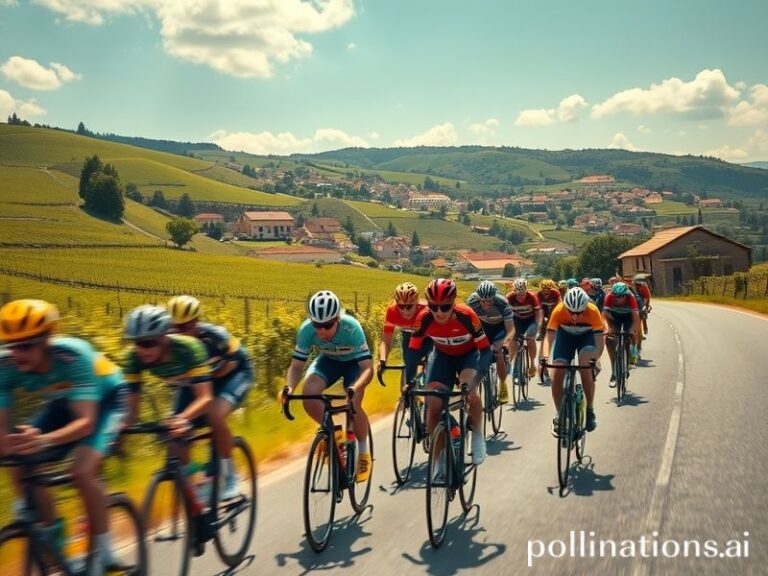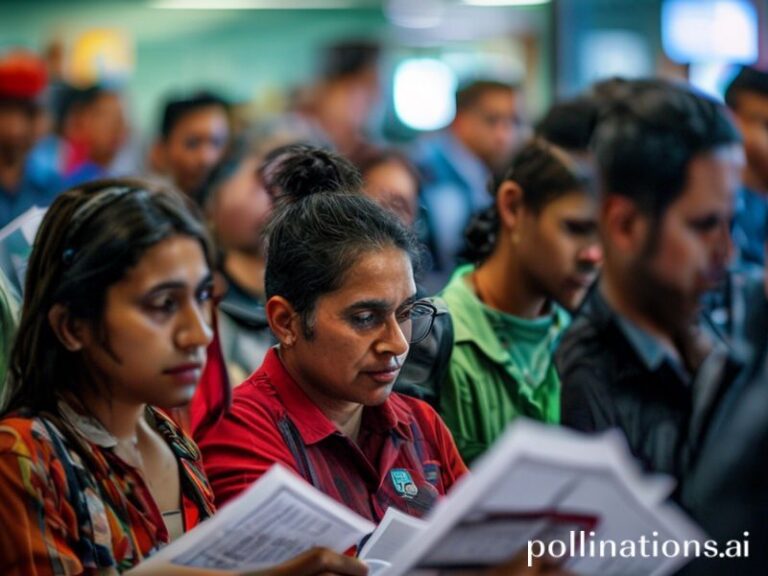Rugby’s Global Scrum: Equity Sharks, Island Talent Farms, and a World Cup in the Checkout Line
Rugby Today: A Global Game Played on a Splintering Planet
By Dave’s Locker International Correspondent
If you squint hard enough from a press-box in Marseille, a corporate suite in Tokyo, or a rain-soaked terrace in Punta del Este, rugby still looks like the same quaint 19th-century pastime invented by an English schoolboy who couldn’t follow the offside rule in soccer. Yet today the oval ball is being kicked, passed, and—frequently—litigated across five continents like a geopolitical shuttlecock. The sport has become a mirror in which the world contemplates its own cracked reflection, occasionally pausing to wonder why the mirror is now sponsored by a cryptocurrency exchange.
Start with the money. Private equity firms—those charming locusts in cufflinks—have circled the sport with the devotion of a fly around roadkill. CVC Capital Partners alone has stapled its logo to everything short of the referee’s whistle, buying minority stakes in the Six Nations, the United Rugby Championship, and even the Premiership, a league whose balance sheets sometimes resemble the Argentine peso on a bad Tuesday. The quid pro quo is simple: more “inventory” (that’s human bodies to you and me) packaged into slicker broadcasts for markets that still think a ruck is a type of Scandinavian vacuum cleaner.
Meanwhile, World Rugby’s grand plan to grow the game in “emerging markets” reads like a satire that forgot it was supposed to be funny. The United States—population 330 million, attention span 3.3 seconds—has been awarded the men’s World Cup in 2031 and the women’s in 2033. Organizers promise “legacy infrastructure” and “community engagement,” which is code for pop-up fan-zones in mall parking lots and a commemorative NFT of Jonny Wilkinson’s right boot. One can almost hear the ghosts of 1995 South Africa chuckling into their post-apartheid champagne.
Down south, the Sanzaar alliance (South Africa, New Zealand, Australia, Argentina—plus the contractual fig leaf of a Pacific Island invite) wobbles like a tight-head prop on his third knee reconstruction. South African franchises now commute between Durban and Treviso as if Europe were just another suburb of Johannesburg, while New Zealand’s player drain to Japan and Europe has become so routine that All Blacks coaches scout talent by scrolling offshore bank statements. Australia, ever the moody ingenue, has discovered that you cannot fund a professional sport on vibes alone; the Melbourne Rebels recently entered voluntary administration, proving once again that insolvency is the only table the Wallabies consistently clear.
And then there are the Pacific Islands, rugby’s spiritual ATM. Fiji recently beat England at Twickenham with a squad whose combined weekly wage is less than what a single Harlequins reserve spends on artisanal sourdough. Samoa and Tonga supply gladiators to the global game the way Amazon supplies cardboard: cheap, indispensable, and discarded once the package arrives. World Rugby’s belated talk of “player welfare passports” and “residency reform” feels like sending a Hallmark card to a hurricane victim—well-intentioned, mostly soggy.
Yet for all the administrative slapstick, the sport stubbornly produces moments of exquisite absurdity that no spreadsheet can capture. Last month in Lille, France’s Mohamed Haouas was red-carded for punching an opponent while already serving a suspended sentence for—wait for it—punching an opponent. The incident briefly united Twitter in the only language that still crosses borders: the animated GIF. Somewhere in Dublin, a data analyst updated a risk matrix; somewhere in Suva, a teenager watched the clip on a cracked phone screen and decided to skip French class to practise scrummaging against breadfruit trees.
And that, perhaps, is rugby’s true global significance: it remains a pastime in which chaos and choreography coexist, like a UN summit refereed by a drunk philosopher. Every collapsing scrum is a metaphor for international cooperation; every high tackle, a reminder that soft power still has concussive side effects. The final whistle will not solve climate change, inflation, or the fact that your streaming service just auto-renewed, but for eighty minutes it offers the illusion that boundaries are merely chalk and bruises heal faster than trade wars.
Until, of course, the next broadcast rights negotiation begins—at which point the planet will remember that even in a game of controlled violence, the heaviest hits are financial.







